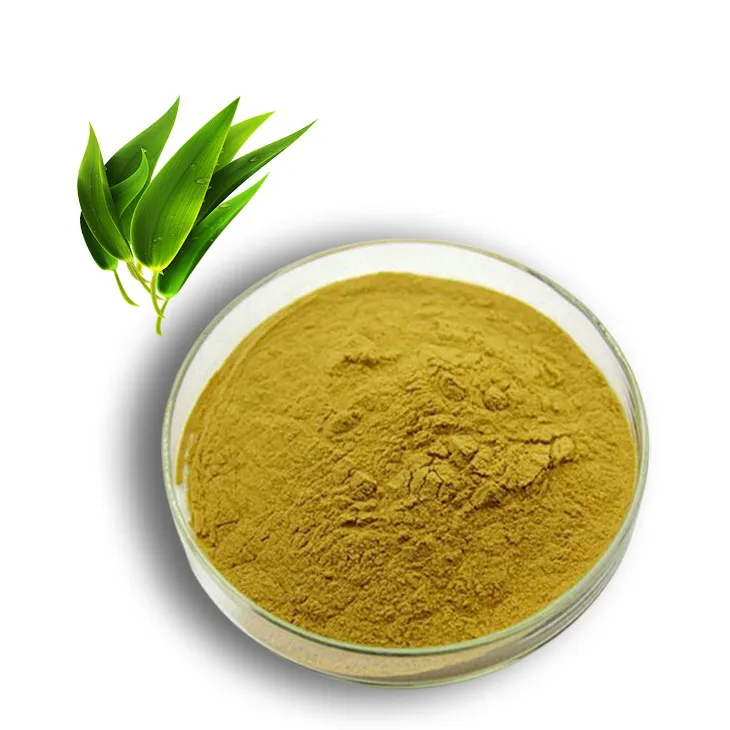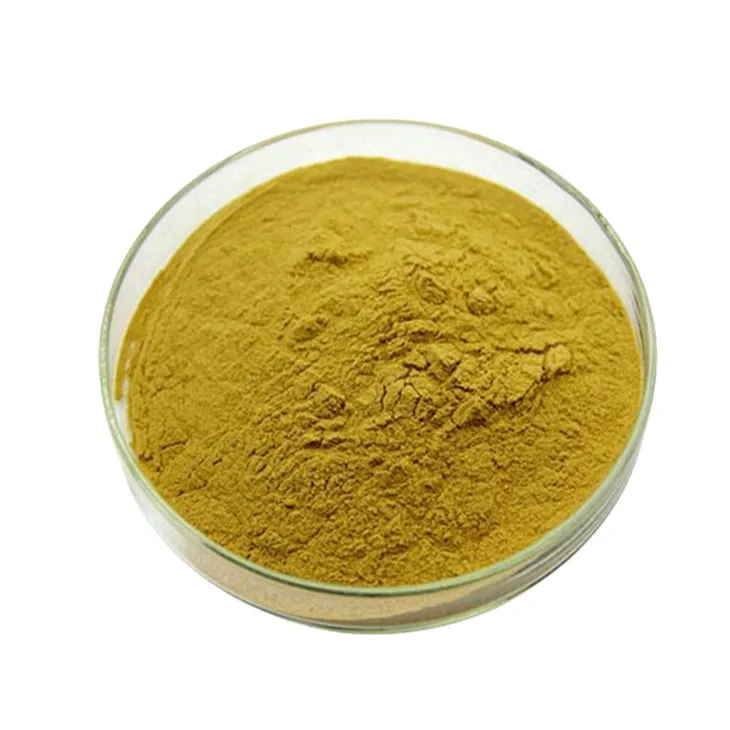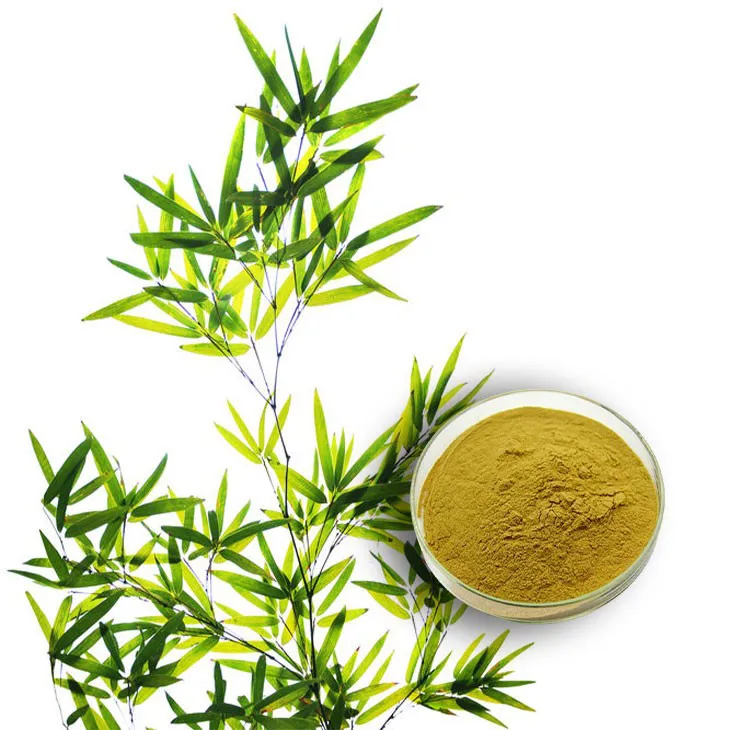- 0086-571-85302990
- sales@greenskybio.com
How can bamboo leaf extract cater to health - conscious consumers?
2024-12-21

1. Introduction
In recent years, health - conscious consumers have become a significant force in the market. They are constantly on the lookout for natural products that can offer proven health benefits. Bamboo Leaf extract emerges as a very promising candidate in this regard. It is derived from the abundant and renewable bamboo plant, which has a long history of use in various traditional medicine systems.

2. The Health Benefits of Bamboo Leaf extract
2.1 Flavonoids and Their Significance
One of the main reasons why Bamboo Leaf extract is so valuable is its rich content of flavonoids. Flavonoids are a class of plant - based compounds known for their antioxidant, anti - inflammatory, and anti - microbial properties. In the case of bamboo leaf extract, these flavonoids play a crucial role in promoting overall well - being. For example, they can help to enhance immunity by stimulating the body's immune system cells. They also act as powerful antioxidants, which means they can reduce oxidative stress in the body. Oxidative stress is linked to a wide range of health problems, including chronic diseases such as heart disease, cancer, and neurodegenerative disorders.
2.2 Other Active Substances
Besides flavonoids, bamboo leaf extract also contains other active substances. These may include phenolic acids, polysaccharides, and amino acids. Phenolic acids contribute to the antioxidant activity of the extract, while polysaccharides may have prebiotic effects, promoting the growth of beneficial gut bacteria. Amino acids are the building blocks of proteins and are essential for various physiological functions in the body.

3. Product Development Using Bamboo Leaf Extract
3.1 Green Teas
Green teas are a popular beverage among health - conscious consumers. Incorporating bamboo leaf extract into green teas can enhance their health - promoting properties. The natural flavors of bamboo leaf extract can blend well with the delicate taste of green tea, creating a unique and refreshing beverage. Marketers can target consumers who are looking for a more health - enhanced version of their regular green tea. For example, a green tea product with added bamboo leaf extract can be marketed as a "super - green tea" with additional antioxidant and immune - boosting benefits.
3.2 Herbal Remedies
Bamboo leaf extract can also be used in the development of herbal remedies. Herbal remedies are often sought after by consumers who prefer natural alternatives to conventional medications. Bamboo leaf extract can be combined with other herbs to create formulations for various health conditions. For instance, it can be part of a herbal blend aimed at reducing inflammation in the body. This could be useful for people with conditions such as arthritis or joint pain. Another potential application is in herbal remedies for digestive problems. The prebiotic - like effects of the polysaccharides in bamboo leaf extract may help to improve gut health and digestion.
3.3 Dietary Supplements
In the form of dietary supplements, bamboo leaf extract can be made available to consumers who want a more concentrated dose of its health - promoting substances. Dietary supplements can be formulated as capsules, tablets, or liquid extracts. Marketers need to ensure that the supplement is properly labeled with information about the source of the bamboo leaf extract, the concentration of active ingredients, and any recommended usage instructions. For example, it may be recommended to take a certain number of capsules per day to achieve the desired health benefits.
3.4 Cosmetic Products
The antioxidant and anti - inflammatory properties of bamboo leaf extract also make it suitable for use in cosmetic products. It can be added to skin creams, lotions, and serums to help protect the skin from environmental damage, reduce inflammation, and promote a more youthful appearance. For example, a face cream with bamboo leaf extract can be marketed as a natural anti - aging product that helps to reduce wrinkles and improve skin elasticity.

4. Marketing Strategies for Bamboo Leaf Extract - based Products
4.1 Clear Communication of Health Benefits
Marketers need to clearly communicate the health - promoting features of bamboo leaf extract - based products. This can be done through various channels, such as product labels, websites, and advertising materials. For example, on the product label, it should be clearly stated that the product contains bamboo leaf extract and what specific health benefits it offers, such as "Contains bamboo leaf extract rich in flavonoids for enhanced immunity and reduced oxidative stress." On websites and in advertising, more in - depth information can be provided, including scientific studies that support the health claims.
4.2 Targeting Health - Conscious Consumers
To effectively market bamboo leaf extract - based products, it is essential to target health - conscious consumers. This can be achieved by identifying the specific needs and interests of this consumer group. For example, some health - conscious consumers may be interested in products that can help them manage stress, while others may be focused on products for maintaining a healthy weight. Marketers can then develop marketing messages that resonate with these specific interests. For instance, a product with bamboo leaf extract can be marketed as a "natural stress - reliever" or a "weight - management aid" if there is scientific evidence to support such claims.
4.3 Educating Consumers
Many consumers may not be familiar with bamboo leaf extract and its potential health benefits. Therefore, marketers have an important role to play in educating consumers. This can be done through educational content on websites, social media posts, and in - store displays. For example, a brand can create blog posts or videos that explain what bamboo leaf extract is, where it comes from, and how it can benefit health. In - store displays can also include informational brochures or posters that provide basic information about the product and its health benefits.

5. The Appeal of Sustainable Sourcing
For health - conscious consumers who are also eco - friendly, the sustainable sourcing of bamboo is an appealing factor. Bamboo is a highly sustainable plant as it grows rapidly and requires relatively little water and no pesticides or fertilizers in most cases. Marketers can highlight this aspect of bamboo leaf extract in their marketing strategies. For example, they can mention on the product label or in advertising materials that the bamboo used for the extract is sustainably sourced. This can attract consumers who are not only interested in the health benefits of the product but also in its environmental impact.
6. Conclusion
Bamboo leaf extract has great potential to cater to health - conscious consumers. Its rich content of active substances, such as flavonoids, offers a range of health benefits. Through product development in areas such as green teas, herbal remedies, dietary supplements, and cosmetic products, and with effective marketing strategies that clearly communicate its health - promoting features and target the right consumer group, bamboo leaf extract - based products can find a significant place in the market. Moreover, the sustainable sourcing of bamboo adds an extra layer of appeal for eco - friendly consumers. As the demand for natural and health - promoting products continues to grow, bamboo leaf extract is well - positioned to meet the needs of health - conscious consumers.
FAQ:
Q1: What are the main active substances in bamboo leaf extract?
The main active substances in bamboo leaf extract are flavonoids. These flavonoids contribute to the overall health - promoting properties of the extract.
Q2: How can bamboo leaf extract enhance immunity?
The flavonoids and other active components in bamboo leaf extract may play a role in enhancing immunity. However, specific mechanisms are still under research. Generally, they can help regulate the body's immune system functions and response to external threats.
Q3: In which types of health - oriented products can bamboo leaf extract be used?
Bamboo leaf extract can be used in products like green teas and herbal remedies. These products are popular among health - conscious consumers as they offer a natural way to maintain health.
Q4: Why is the sustainable sourcing of bamboo an appealing factor for health - conscious consumers?
Health - conscious consumers who are also eco - friendly are attracted to the sustainable sourcing of bamboo. This is because it shows that the product is not only good for their health but also for the environment. It reflects a more holistic approach to well - being that encompasses both personal health and environmental sustainability.
Q5: How can marketers effectively communicate the health - promoting features of bamboo leaf extract?
Marketers can effectively communicate the health - promoting features of bamboo leaf extract by clearly stating its benefits, such as its role in reducing oxidative stress or enhancing immunity. They can use scientific research findings, if available, to back up their claims. Also, providing information on how it is sourced sustainably can add to its appeal.
Related literature
- The Health Benefits of Bamboo Leaf Extract: A Review"
- "Bamboo Leaf Extract: From Traditional Use to Modern Health Applications"
- "Sustainable Sourcing of Bamboo and Its Impact on the Quality of Bamboo Leaf Extract"
- ▶ Hesperidin
- ▶ citrus bioflavonoids
- ▶ plant extract
- ▶ lycopene
- ▶ Diosmin
- ▶ Grape seed extract
- ▶ Sea buckthorn Juice Powder
- ▶ Beetroot powder
- ▶ Hops Extract
- ▶ Artichoke Extract
- ▶ Reishi mushroom extract
- ▶ Astaxanthin
- ▶ Green Tea Extract
- ▶ Curcumin Extract
- ▶ Horse Chestnut Extract
- ▶ Other Problems
- ▶ Boswellia Serrata Extract
- ▶ Resveratrol Extract
- ▶ Marigold Extract
- ▶ Grape Leaf Extract
- ▶ blog3
- ▶ blog4
- ▶ blog5
-
Pure 85% Tomentil Extract.
2024-12-21
-
Aminolevulinic acid
2024-12-21
-
Pine bark Extract Powder
2024-12-21
-
Honeysuckle Pollen
2024-12-21
-
Shikone Extract
2024-12-21
-
Giant Knotweed Extract
2024-12-21
-
White mustard seed extract
2024-12-21
-
Echinacea Extract
2024-12-21
-
Saw Palmetto Extract
2024-12-21
-
Curcuma Longa Extract/Turmeric extract
2024-12-21
-
Lavender Extract
2024-12-21





















